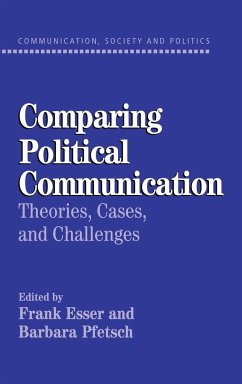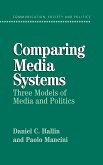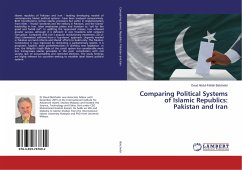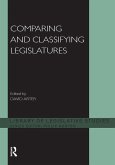This volume assesses state of the art comparative political communication research and considers potential ways in which it could and should develop. Twenty experts from Europe and the United States offer a unique and comprehensive discussion of the theories, cases, and challenges of comparative research in political communication. The first part discusses the fundamental themes, concepts and methods essential to analyze the effects of modernization and globalization of political communication. The second part offers a broad range of case studies that illustrate the enormous potential of cross-national approaches in many relevant fields of political communication. The third part paves the way for future research by describing the most promising concepts and pressing challenges of comparative political communication. This book is intended to introduce new students to a crucial, dynamic field as well as deepening advanced students' knowledge of its principles and perspectives.
Table of contents:
1. Introduction Barbara Pfetsch and Frank Esser; Part I. Theories and Methods: 2. Americanization, globalization, and secularization: understanding the convergence of media systems and political communication Daniel C. Hallin and Paolo Mancini; 3. Transnational trends in political communication: conventional views and new realities David L. Swanson; 4. Comparing mass communication systems: media formats, media contents, and media processes Hans J. Kleinsteuber; 5. Designs and methods of comparative political communication research Werner Wirth and Steffen Kolb; Part II. Cases: 6. Global political communication: good governance, human development and mass communication Pippa Norris; 7. Local political communication: media and local publics in the age of globalization Sabine Lang; 8. Strategic political communication: mobilizing public opinion in 'audience democracies' Hanspeter Kriesi; 9. Political campaign communication: conditional convergence of modern media elections Christina Holtz-Bacha; 10. Political communication and electronic democracy: American exceptionalism or global trend? Thomas Zittel; 11. Political news journalists: partisanship, professionalism, and political roles in five countries Wolfgang Donsbach and Thomas Patterson; 12. Political communication messages: pictures of our world on international television news Patrick Rössler; 13. Political communication effects: the impact of mass media and interpersonal conversations on voting Rüdiger Schmitt-Beck; Part III. Perspectives and Challenges: 14. State of the art in comparative political communication research: poised for maturity? Michael Gurevitch and Jay G. Blumler; 15. From political culture to political communications culture: a theoretical approach to comparative analysis Barbara Pfetsch; 16. Problems of comparative political communication research: culture as a key variable Robert L. Stevenson; 17. Meeting the challenges of global communication and political integration: the significance of comparative research in a changing world Frank Esser and Barbara Pfetsch.
This volume assesses state of the art comparative political communication research and considers potential ways in which it could and should develop. This book is aimed at introducing new students to a crucial, dynamic field as well as deepening advanced students' knowledge of its principles and perspectives.
The volume aims at providing a comprehensive understanding of comparative political communication.
Hinweis: Dieser Artikel kann nur an eine deutsche Lieferadresse ausgeliefert werden.
Table of contents:
1. Introduction Barbara Pfetsch and Frank Esser; Part I. Theories and Methods: 2. Americanization, globalization, and secularization: understanding the convergence of media systems and political communication Daniel C. Hallin and Paolo Mancini; 3. Transnational trends in political communication: conventional views and new realities David L. Swanson; 4. Comparing mass communication systems: media formats, media contents, and media processes Hans J. Kleinsteuber; 5. Designs and methods of comparative political communication research Werner Wirth and Steffen Kolb; Part II. Cases: 6. Global political communication: good governance, human development and mass communication Pippa Norris; 7. Local political communication: media and local publics in the age of globalization Sabine Lang; 8. Strategic political communication: mobilizing public opinion in 'audience democracies' Hanspeter Kriesi; 9. Political campaign communication: conditional convergence of modern media elections Christina Holtz-Bacha; 10. Political communication and electronic democracy: American exceptionalism or global trend? Thomas Zittel; 11. Political news journalists: partisanship, professionalism, and political roles in five countries Wolfgang Donsbach and Thomas Patterson; 12. Political communication messages: pictures of our world on international television news Patrick Rössler; 13. Political communication effects: the impact of mass media and interpersonal conversations on voting Rüdiger Schmitt-Beck; Part III. Perspectives and Challenges: 14. State of the art in comparative political communication research: poised for maturity? Michael Gurevitch and Jay G. Blumler; 15. From political culture to political communications culture: a theoretical approach to comparative analysis Barbara Pfetsch; 16. Problems of comparative political communication research: culture as a key variable Robert L. Stevenson; 17. Meeting the challenges of global communication and political integration: the significance of comparative research in a changing world Frank Esser and Barbara Pfetsch.
This volume assesses state of the art comparative political communication research and considers potential ways in which it could and should develop. This book is aimed at introducing new students to a crucial, dynamic field as well as deepening advanced students' knowledge of its principles and perspectives.
The volume aims at providing a comprehensive understanding of comparative political communication.
Hinweis: Dieser Artikel kann nur an eine deutsche Lieferadresse ausgeliefert werden.








